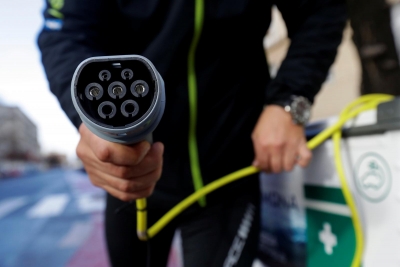Researchers Design Novel Method To Fully Charge EV Cars In 10 Minutes

New York, Aug 22: A team of US researchers on Monday said they have designed superfast charging methods tailored to power different types of electric vehicle batteries in 10 minutes or less without harm.
Charging the lithium-ion batteries that fuel electric vehicles is a delicate balancing act.
A team of #US researchers said they have designed superfast charging methods tailored to power different types of #electricvehicle batteries in 10 minutes or less without harm.
Photo: IANS (Representational image) pic.twitter.com/AtF35W8h4U
— IANS (@ians_india) August 22, 2022
One solution is to tailor the charging protocol in a way that optimises speed while avoiding damage for the many different types of battery designs currently used in vehicles.
Eric Dufek, department manager for the Energy Storage and Electric Transportation Department at Idaho National Laboratory in the US, and his research team reported the use of machine learning techniques that incorporate charging data to create unique charging protocols.
“Fast charging is the key to increasing consumer confidence and overall adoption of electric vehicles,” said Dufek.
“It would allow vehicle charging to be very similar to filling up at a gas station,” he said at the meeting of the American Chemical Society (ACS).
By inputting information about the condition of many lithium-ion batteries during their charging and discharging cycles, the scientists trained the machine learning analysis to predict lifetimes and the ways that different designs would eventually fail.
The team then fed that data back into the analysis to identify and optimize new protocols that they then tested on real batteries.
“We’ve significantly increased the amount of energy that can go into a battery cell in a short amount of time,” said Dufek.
“Currently, we’re seeing batteries charge to over 90 per cent in 10 minutes without lithium plating or cathode cracking.”
The researchers plan to use their model to develop even better methods and to help design new lithium-ion batteries that are optimised to undergo fast charging.
The ultimate goal is for electric vehicles to be able to “tell” charging stations how to power up their specific batteries quickly and safely.
With IANS Inputs….







